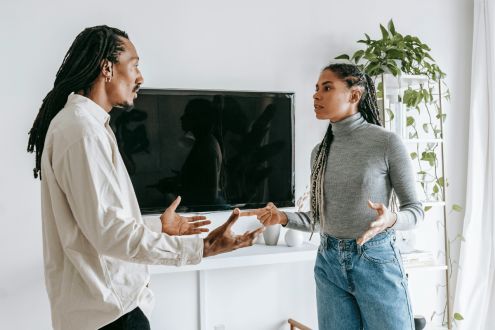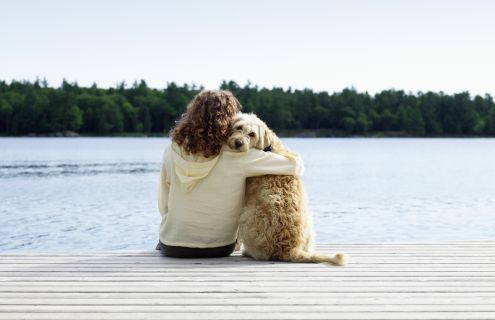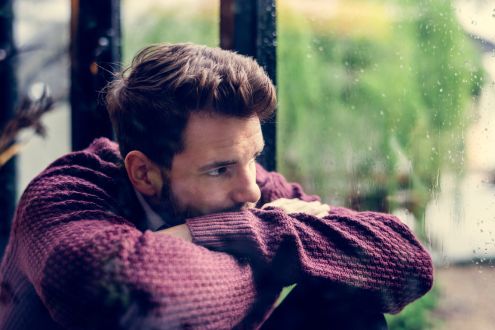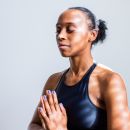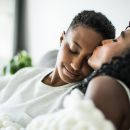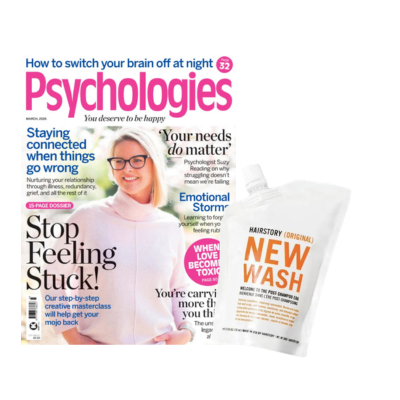Can’t sleep? Try this
Just going to bed early isn’t a guarantee of restful slumber. But there are numerous products, therapies and services designed to improve sleep quality and help you wake up feeling better – we put the latest to the test
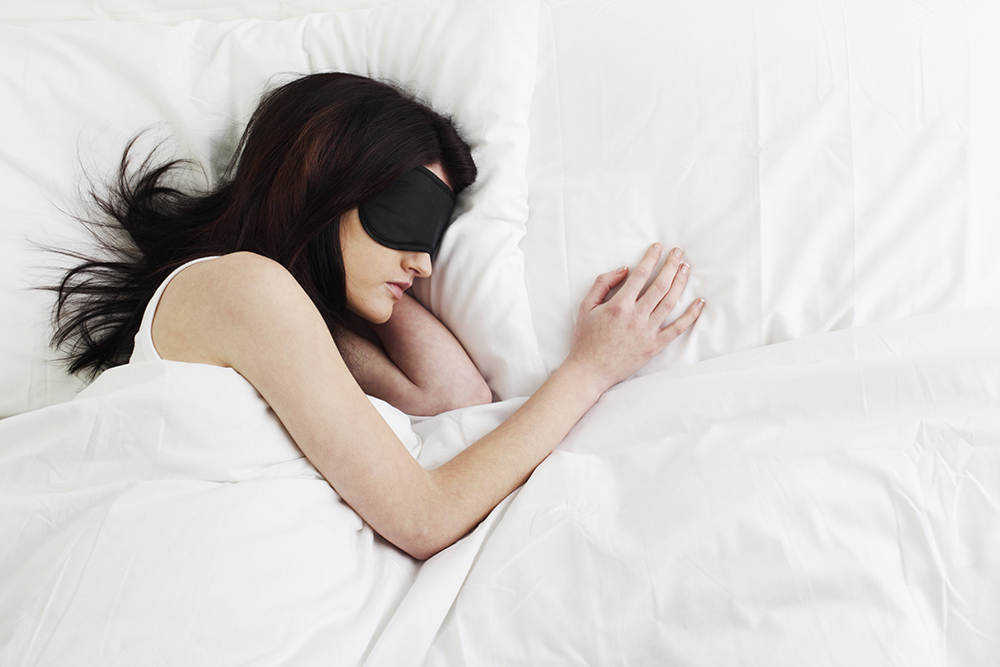
We all know the benefits of sleeping well, and a wealth of new research shows just how good it is for our minds and bodies. But the irony is that we’re sleeping less than ever. On average, we sleep for two hours less than we did in 1960. In a recent survey, 48 per cent of us said we need eight hours, but often only get six. So how do we access that elusive night of rest to wake up revitalised? We put some sleep solutions to the test…
1. THE PILLOW
The theory
Most of us sleep on at least two pillows, but osteopath Kulwinder Bajwa says raising the head too high throws the spine out of alignment, which leads to restlessness. ‘The right height of pillow depends on the distance between shoulder and neck, which can vary widely,’ he says. ‘The right pillow means longer hours of deeper, more restorative sleep.’ Bajwa’s prescription pillow service, available at osteopathy clinics across the UK, bases pillow-size on your individual shoulder-to-neck measurement (from £49.99, goldilockspillows.co.uk).
Alternatively, you can buy a bespoke pillow online, designed by sleep guru and osteopath Sammy Margo, by filling out a questionnaire about your sleeping position, body size and personal preferences (£14.99, thegoodsleepexpert.co.uk). ‘To avoid problems, good posture is as important in bed as it is during the day,’ says Margo.
Cost: From £14.99
Sleep success rating: ***
‘I measured as 1, the flattest pillow in the Goldilocks range. Sleeping on it felt very odd at first, especially as it’s made of fairly firm foam, and I usually sleep on soft feather pillows. But by the third night, I loved it. My husband said I’m far less restless and I seem to wake up feeling less achy.’ Sally Brown
2. THE MONITOR
The theory
Jawbone UP is a slim bracelet that logs your movements during the day, and also during sleep. By synchronising it with an app on your phone, it produces a graph of phases of light and deep sleep through the night, tracking how long it took you to get to sleep, or how often you woke up. You can note your mood and energy levels, so you get an overview of how you’re affected by your sleep habits.
Cost: £99.95 from jawbone.com or Apple stores.
Sleep success rating: ****
‘An addictive bit of kit that taught me a lot about my sleep habits, like how my deep sleeping periods are drastically reduced if I’ve had wine in the evening. I’d known alcohol reduces sleep-quality, but seeing proof motivated me to cut it down to once or twice a week.’ Sally Brown
3. THE THOUGHT PROCESS
The theory
Sleep problems can be caused by unhelpful beliefs about our ability to sleep, says Professor Colin Espie, director of the University of Glasgow Sleep Centre. Thinking of yourself as a poor sleeper sends unconscious messages to the brain meaning you won’t sleep well. A new online course called Sleepio, using CBT, can help replace unhelpful thinking, like ‘I won’t cope at work if I don’t get to sleep’ with more realistic ones, such as, ‘I’ve coped before when I’ve felt tired.’
Cost: From £6.99 per week (sleepio.com or boots.com).
Sleep success rating: *****
‘After having six children, I had trouble getting to sleep and staying asleep. I’d be anxious about going to bed and was given sleeping pills eventually. But I never liked that idea. This programme has changed my mindset. I now have a set wind-down routine to follow, and I no longer feel anxious about going to bed. I know what to do to ensure I get a good night.’ Sheila Fitzgerald
4. THE MUSIC
The theory
Drifting off to relaxing music can improve sleep-quality. ‘A carefully created playlist of relaxing songs helps the body prepare for sleep by lowering blood pressure and bringing us into a much more relaxed mental state,’ says psychologist Dr Tomas Chamorro-Premuzic from University College London. He recommends long, repetitive songs with no lyrics and fewer than 80 beats per minute – so get out the old Ibiza chillout albums.
Cost: Free (if you use music you already have). For maximum comfort, invest in SleepPhones (£29, sleepphones.co.uk), headphones in a super soft headband.
Sleep success rating: ****
‘I’m studying part-time for a Masters degree and need to be up by 7am for work so I’m always tired. But recently I went to the UK’s first Sleeping Gig, held by Direct Line. We laid on chaise-longues in masks and blankets, listening to an orchestra play soothing versions of Coldplay and Snow Patrol songs. I didn’t expect to, but I drifted off to sleep and felt fantastic when I woke up. I now use music to help me wind down for bed and I’m definitely getting more sleep.’ Isabel Friar
5. THE CLOCK
The theory
We’re meant to go to sleep when it’s dark and get up when it’s light, so getting up in the dark can disrupt us. The Lumie BodyClock Go alarm clock mimics dawn, waking you with a gradually increasing light. Waking like this kickstarts your body clock, so you not only have more energy by day, but should sleep deeper at night.
Cost: £74.95 (from lumie.com).
Sleep success rating: ***
‘I used this to wake up at 3.30am to catch a flight. It felt a bit more like someone putting on a light than a gradual awakening, but getting up did feel effortless and I wasn’t as tired as I expected to be during the day either.’ Sally Brown
6. THE GURU
The theory
Many people are shallow breathers, which means the sympathetic nervous system is permanently activated, raising heart-rate and blood pressure and making deep sleep hard, says Sleep Guru Anandi, who overcame her insomnia using yogic breathing techniques, and runs Breathe Yourself To Sleep workshops in London.
Cost: £70. There is also a DVD, The Practice Of Sleep, which costs £14.95, available from thesleepguru.co.uk
Sleep success rating: ****
‘Learning to breathe more slowly and deeply has been life-changing for me, as it stops my anxiety levels creeping up during the day. I used to lie awake for ages with my mind racing. One of the techniques I learned was bumblebee breathing – where you make a humming sound on each out-breath. If I do 10 minutes of this before getting into bed, I fall asleep straight away.’ Natasha Green
7. THE DARK
The theory
There is mounting evidence that we’re designed to sleep in the pitch dark, and even the glow from a clock or a phone can disrupt the release of melatonin, the hormone that triggers the deepest sleep, and is also linked with reduced rates of certain types of cancer.
Cost: Free
Sleep success rating: *****
‘I thought I slept in the dark but doing a check of the bedroom, I realised there was ambient light from both a digital radio and a charger. I was amazed at what a difference switching them off made – complete darkness seemed to create a deeper sleep that left me feeling more refreshed. It’s such a simple thing but it made a really noticeable impact on the quality of my sleep.’ Sally Brown
More inspiration:
Read What is your chronotype? by Eminé Ali Rushton on LifeLabs
Photograph: Corbis
